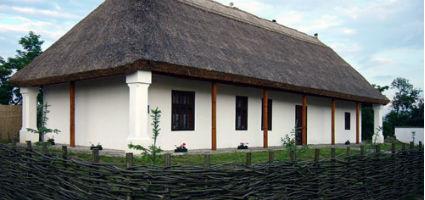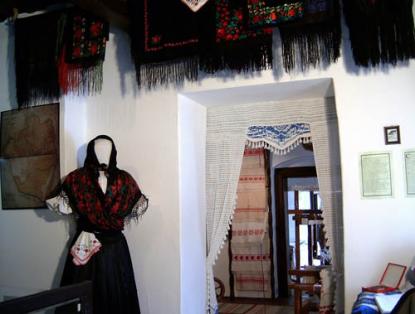2026. January 15. Thursday
Nagy Dezső Cultural center and Village Museum - Cigánd
 |
Address: 3973, Cigánd Fő u. 54.
Phone number: (47) 534-012
E-mail: muvhazcigand@gmail.com
Opening hours: Prior notice via telephone: +36 (47) 534-012, at weekends and on holidays on the phone number +36 (70) 626-8280 as well as the address of the County House anytime.
|
Museum tickets, service costs:
|
Ticket
|
100 HUF
|
The fourth room of the Village Museum is the ward holding exhibition s about the past of the village, as well as famous people born in the village. We show the copy of the charter that first mentioned Cigánd, the tithe list from 1571 that first mentioned the list of the serfs who worked and lived in the village.

We display a map from 1836 that shows the suburbs of Kiscigánd before the regulation of the river and the times when the land of the serfs and the landowners were not strictly separated. The large marsh in the suburbs of the village is clearly visible on the map, as well as the early names of the suburbs that are very talkative of the past. We also show the copy of a request letter that the village sent to the County asking for more considerate taxes since the village had suffered flood.
The letter is from 1814. The people living in the village used to belong to the Reformed Church due to the river regulation. The economic changes and that in the social composition of the village are also represented. Contemporary passports, documents and letters sent from America, demonstrate emigration to the country.

We display a map from 1836 that shows the suburbs of Kiscigánd before the regulation of the river and the times when the land of the serfs and the landowners were not strictly separated. The large marsh in the suburbs of the village is clearly visible on the map, as well as the early names of the suburbs that are very talkative of the past. We also show the copy of a request letter that the village sent to the County asking for more considerate taxes since the village had suffered flood.
The letter is from 1814. The people living in the village used to belong to the Reformed Church due to the river regulation. The economic changes and that in the social composition of the village are also represented. Contemporary passports, documents and letters sent from America, demonstrate emigration to the country.
